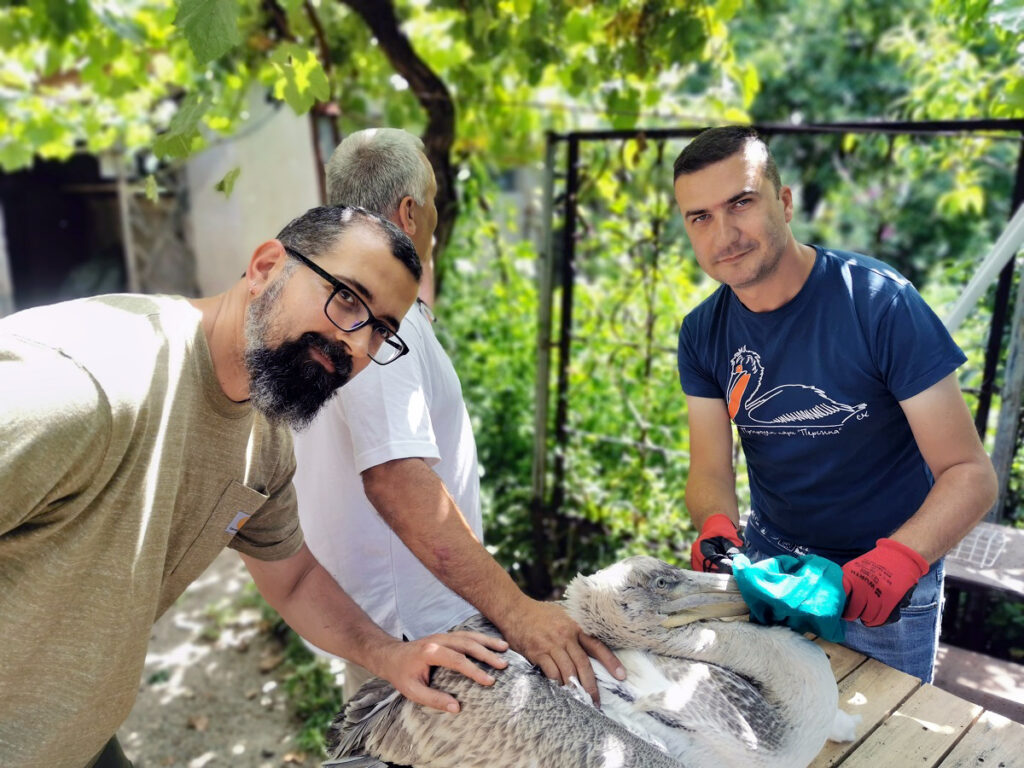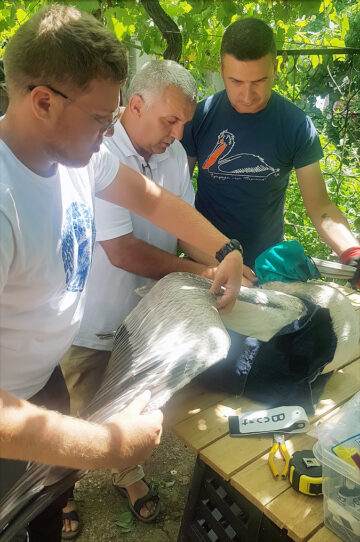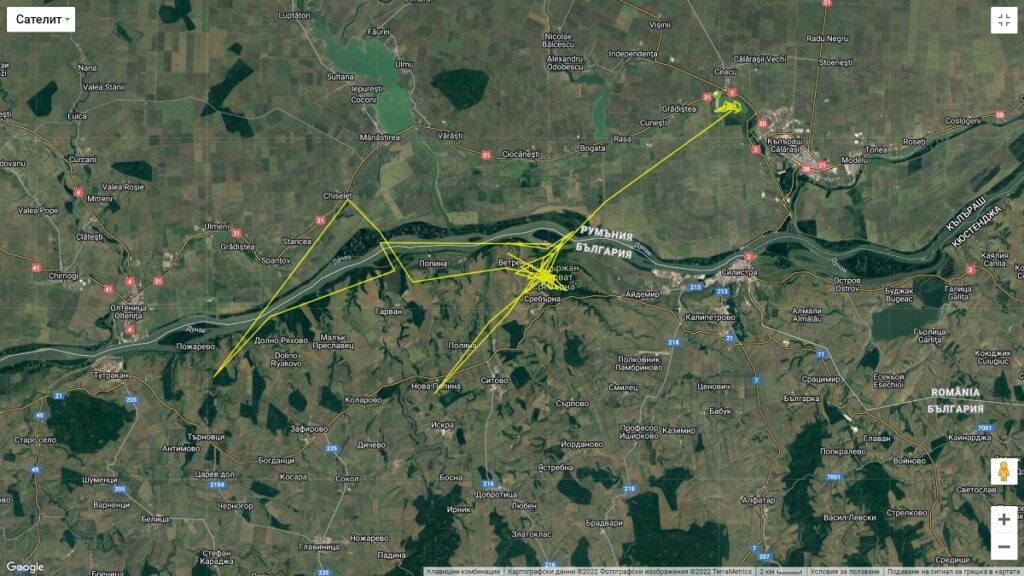On June 24, a team of the Bulgarian Society for the Protection of Birds (BSPB) successfully tagged with a satellite transmitter a young Dalmatian pelican from the breeding colony of the species in the Kalimok-Brushlen Protected Area. This is the first pelican with a transmitter that was hatched and raised in a Bulgarian colony of the species.

The transmitter weighs 33 grams and measures 55×56×32 mm. It is placed on a special section of the bird’s wing, where it does not cause inconvenience. The tagged birds get used to the transmitters very quickly and can carry out their daily activities without any problems.
Immediately after the manipulation, the Dalmatian pelican was released into the Srebarna lake, due to the lack of water level in the “Kalimok-Brushlen” lake. At the moment, the bird is kept mainly in Srebarna and in Lake Calarasi in Romania, where it feeds together with other pelicans.

The placing of transmitters on a Dalmatian pelican is being carried out for the first time in Bulgaria and is a great advance in the research of this rare species. Through ring data and satellite telemetry, the scientists will learn more about the ecology, movements and threats of the species, which will help them to plan and take future conservation measures to protect it.
The tagged young female Dalmatian pelican is called Kali and is named after the Kalimok-Brushlen Protected Area, where a new nesting colony was formed in 2021. Kali is one of thirty young pelicans that were successfully raised this season.
The BSBP team would like to thank their volunteer Dimo Shehlarski and their friends from the “Association for the Development of Tourism in Tutrakan and the Region”, without whom this important activity would not have been carried out.
The study of the species is carried out within the framework of the international project “Pelican Way of LIFE” (LIFE18 NAT/NL/000716) funded by the EU LIFE programme. The project is coordinated by Rewilding Europe, in partnership with the Bulgarian Society for the Protection of Birds, the Romanian Ornithological Society (SOR), the Hellenic Ornithological Society (HOS), the Persina Nature Park Directorate – Belene, Rewilding Ukraine and Rewilding Danube Delta.
Soon the data from the transmitter will be uploaded to the project site and it will be possible to track the movements of the tagged pelican in real-time.
